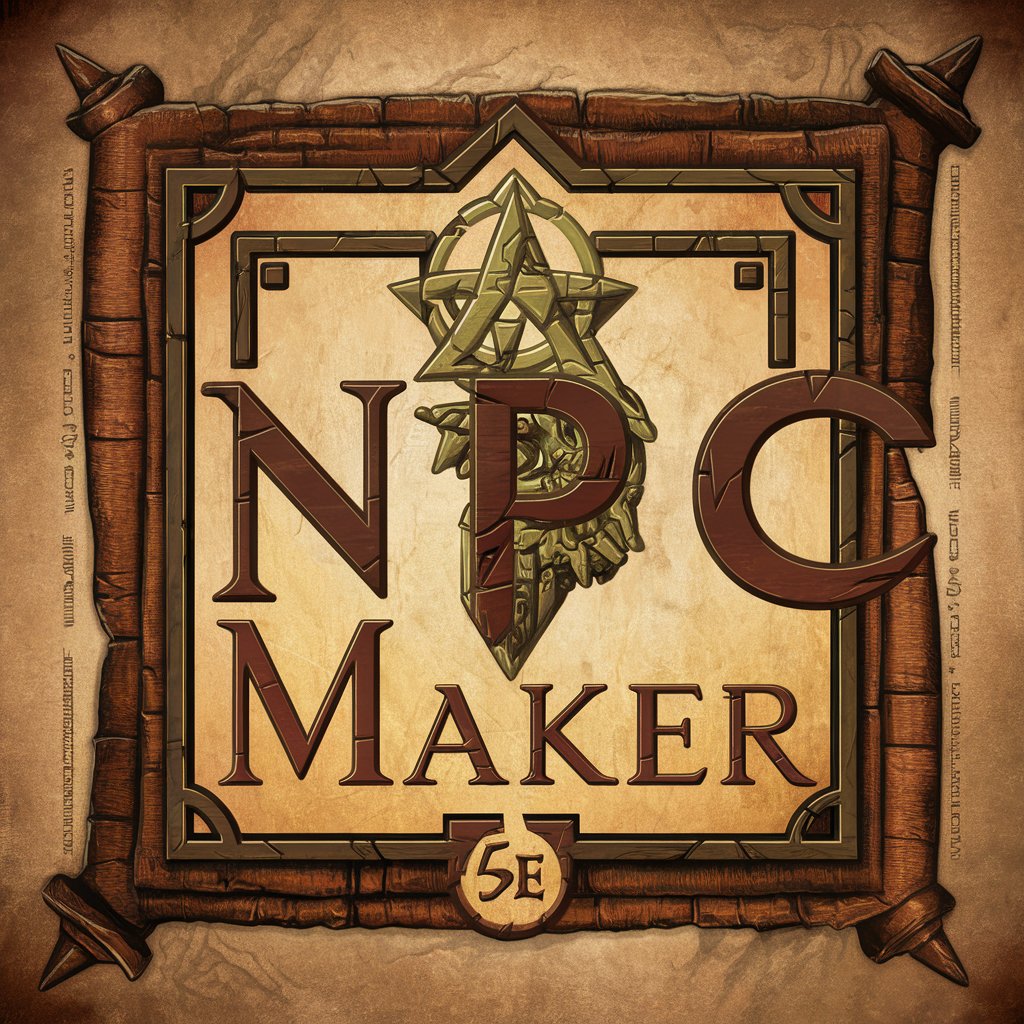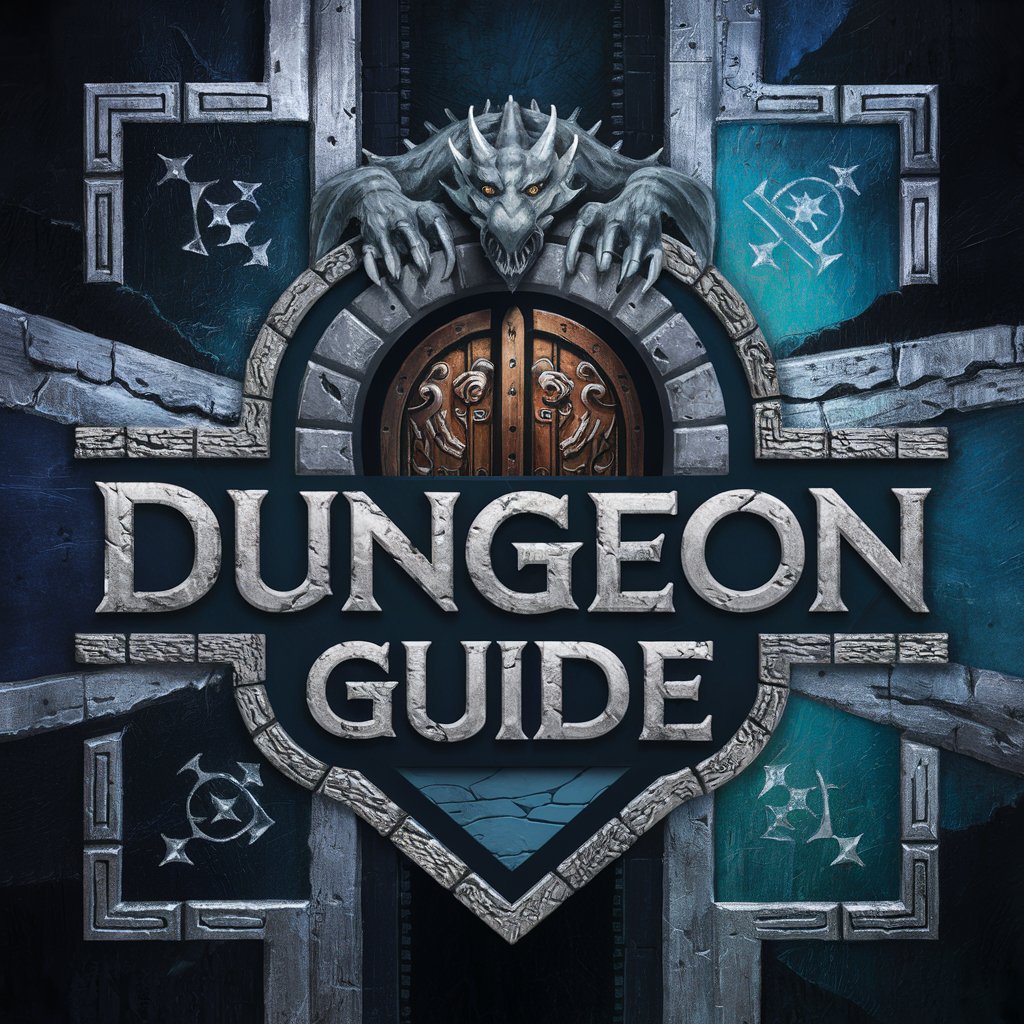7 GPTs for Interactive Roleplay Powered by AI for Free of 2026
AI GPTs for Interactive Roleplay are advanced tools leveraging Generative Pre-trained Transformers to simulate conversational and interactive scenarios. Designed to understand and generate human-like text responses, these tools cater to a wide range of applications from entertainment to education, enabling users to engage in dynamic role-playing exercises. By adapting to the nuances of human dialogue, GPTs provide a tailored experience, making them invaluable for creating immersive and realistic interactions within various contexts.
Top 7 GPTs for Interactive Roleplay are: Vampire: The Masquerade Storyteller,Naruto GPT,RPG GPT,NPC Maker,Dungeon Guide,Your Journey,료멘 스쿠나 - 주술회전
Vampire: The Masquerade Storyteller
Immersive Gothic Storytelling, AI-Powered

Naruto GPT
Discover the Ninja Way with AI

RPG GPT
Craft Your Epic: AI-Powered RPG Adventures

NPC Maker
Bringing Your Fantasy Worlds to Life

Dungeon Guide
Revolutionizing Roleplay with AI-Driven Narratives

Your Journey
Craft Your Adventure with AI

료멘 스쿠나 - 주술회전
Unleash Your Cursed Adventures

Key Attributes and Functions
AI GPTs for Interactive Roleplay stand out due to their adaptability across various complexity levels, ranging from simple conversational exchanges to intricate scenario-based simulations. Key features include advanced language understanding, context retention over extended interactions, and the ability to incorporate external data for enriched responses. Specialized functionalities such as language learning, technical troubleshooting, and creative storytelling are also notable, alongside capabilities in web searching, image creation, and data analysis to enhance interactive experiences.
Who Benefits from Interactive Roleplay GPTs
These tools are designed for a broad audience, including novices seeking entertainment or educational content, developers creating interactive applications, and professionals in training and simulation fields. They offer an accessible platform for users without programming skills through intuitive interfaces, while also providing robust customization options for tech-savvy individuals to tailor experiences to specific needs.
Try Our other AI GPTs tools for Free
Adventure Design
Unlock the potential of AI GPTs for Adventure Design to create immersive narratives, design game levels, and plan expeditions. These tools offer innovative solutions for developers, writers, and adventure enthusiasts alike.
Feedback Analysis
Unlock the power of AI GPTs for Feedback Analysis to transform customer feedback into actionable insights. Enhance decision-making and user experience with advanced AI tools.
Response Personalization
Discover how AI GPTs for Response Personalization transform user interactions with dynamic, tailored solutions designed for diverse applications, enhancing engagement and efficiency.
Law Interpretation
Revolutionize your legal research with AI GPTs for Law Interpretation, leveraging advanced AI to navigate legal texts with unprecedented ease and accuracy.
Collaboration Improvement
Discover how AI GPTs for Collaboration Improvement can transform your team's efficiency and creativity with tailored, intelligent solutions designed for modern collaborative environments.
Technical Interview Prep
Master technical interviews with AI GPTs - your adaptive prep tool for coding challenges, system design, and more. Tailored learning for all levels.
Expanding the Horizon with GPTs
AI GPTs for Interactive Roleplay are not just about simulating conversations; they represent a leap towards creating more intuitive and engaging digital experiences. Their ability to integrate seamlessly into existing systems or workflows, combined with user-friendly interfaces, makes them a powerful tool across various sectors, including gaming, education, customer service, and more.
Frequently Asked Questions
What exactly are AI GPTs for Interactive Roleplay?
AI GPTs for Interactive Roleplay are AI-driven tools that simulate human-like conversations and scenarios for users to engage with, providing realistic and dynamic role-playing environments.
Can these tools be used for educational purposes?
Yes, they are highly effective for educational scenarios, offering interactive learning experiences that can adapt to the user's responses and provide personalized feedback.
Do I need coding skills to use these tools?
No, many of these tools are designed with user-friendly interfaces that require no coding skills, making them accessible to a wide audience.
How do these tools adapt to different user inputs?
They utilize advanced machine learning algorithms to understand and predict user intent, allowing for flexible and contextually relevant responses.
Can I customize the scenarios and characters in these tools?
Yes, many tools offer customization options for scenarios, characters, and dialogues, allowing developers and users to tailor experiences to their preferences.
Are there any privacy concerns with using AI GPTs for Interactive Roleplay?
As with any AI tool, privacy concerns exist, but reputable providers implement strict data protection and privacy policies to safeguard user information.
Can these tools generate images as part of the roleplay experience?
Some advanced versions incorporate image generation capabilities, enabling visual components to complement textual interactions for a more immersive experience.
What are the limits of these AI GPTs in interactive roleplay?
While highly advanced, they may not capture the full complexity of human emotion or subtlety in certain contexts, and their responses are limited to the data they have been trained on.